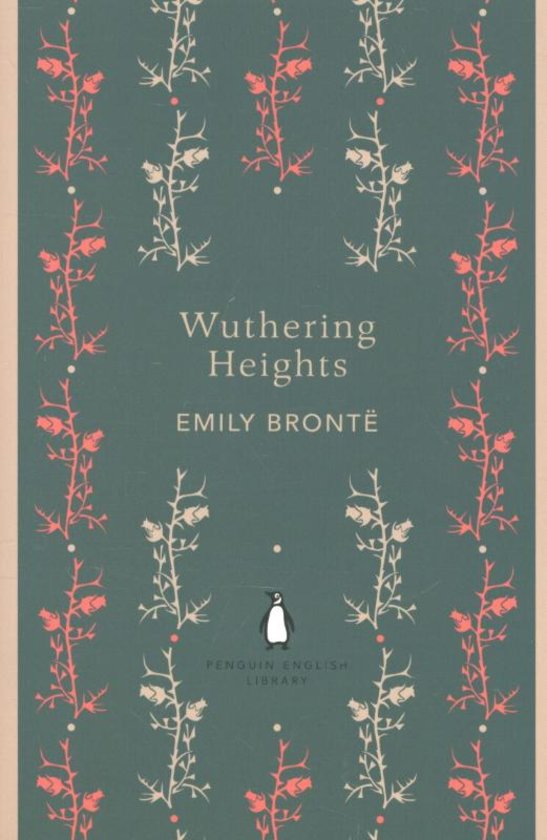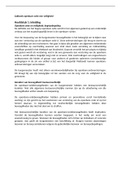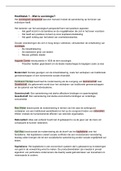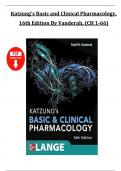far do you agree?
Wuthering Heights is a novel written by Emily Bronte, and was initially published under the
pseudonym of Ellis Bell. Throughout the novel recurring themes are the use of romantic and
byronic heroes. A byronic hero is a type of protagonist created by Lord Byron who wishes to
accomplish something good or heroic, but may be conflicted in how to achieve this. It is set
during Victorian England and takes place in a gothic setting, adopting many themes of the
genre including themes of the supernatural, such as the appearance of ghosts and the use
of dreams. It explores the relationships between two families, the Lintons and the
Earnshaws, and much of the plot focuses on the character of Heathcliff, who belongs to
neither. I would agree that Edgar Linton, who is in many ways Heathcliff’s nemesis, is more
deserving of being called the hero of Wuthering Heights due, in large part, to his opposition
to the violent and revenge-focused Heathcliff.
From our introduction to Edgar Linton, it becomes clear he is a foil to Heathcliff, and is
described by Heathcliff in chapter 6 as, “Edgar stood on the hearth, weeping silently… The
Idiots!... we did despise them!”. Edgar immediately is presented as weak, being laughed at
both by Catherine and Heathcliff for his childishness. The fact that Catherine laughs at Edgar
is significant, and may demonstrate the influence of Heathcliff on her character, despising
Edgar at first sight, when she would eventually go on to marry him. Heathcliff’s instant dislike
of Edgar may foreshadow their future conflict, and it must be noted that as this narration is
from Heathcliff’s perspective it may be skewed towards his personal opinions, as he is an
unreliable narrator. This introduction, however, is similar to Heathcliff’s introduction, where
Nelly Dean describes him as a “gypsy brat”, instantly creating negative connotations with
Heathcliff as a low-down commoner, of no status or significance. Heathcliff’s immediate
dislike of Edgar shows that they are the perfect foils to one another from the offset and sets
up that Edgar may be worth rooting for, as he is presented as weak and vulnerable in his
introduction, and as the opposite to the villainous Heathcliff.
The use of mysteries and secrets are a defining point of the gothic genre, with diaries being
a significant contributor to this, Bronte using them throughout the novel. In chapter 3,
Lockwood’s discovery of Catherine’s diary hinting at a distant past where things seem much
different than they are by the time Lockwood arrives. Within the same bedroom Lockwood
finds engraved into the bed three names, “Catherine Earnshaw, Catherine Heathcliff,
Catherine Linton.”. These three names foreshadow the love triangle between Heathcliff,
Catherine, and Linton, the source of most of the conflict throughout the novel. The fact that
this love triangle is implied so early in the novel, when very little is known about it, raises
many questions and makes the plot feel more mysterious. The highly gothic nature of this
chapter contributes to the feeling of the novel and implies Heathcliff’s obsessive love for
Catherine early on, setting him up as a dangerous man who is madly in love, and
establishing him as a byronic hero. The fact that Heathcliff is so clearly a byronic hero may
raise the argument that he could be called the hero of Wuthering Heights.
The description of Catherine’s love, and the difference between her feelings for Edgar and
Heathcliff, may go a long way in establishing who could be considered the hero of the novel.
Catherine’s grand exclamation, “My love for Linton is like the foliage in the woods: time will
change it, I’m well aware, as Winter changes the trees.”, perfectly summarises Catherine’s
, feelings towards Edgar; she may very genuinely love him, but this is a temporary state which
is far from comparable to the love she feels for Heathcliff, as she herself says, “My love for
Heathcliff resembles the eternal rocks beneath: a source of little visible delight, but
necessary.” Catherine loves Heathcliff in a more permanent way than Edgar; however, her
choice of Edgar over him makes Edgar seem more likely to be called the hero of Wuthering
Heights. Catherine knows that she cannot be with Heathcliff despite her love, something she
is able to accept, but he is not, thus making him feel inclined to enact his perceived revenge
upon them both. In Heathcliff’s refusal to accept Catherine’s marriage he becomes the villain
of Wuthering Heights, unable to accept that he was not chosen by her and taking out his
aggression on those he feels are responsible for their separation. The fact that Catherine, a
central character, chose Edgar makes it clear that he is the hero of the novel, especially as
he is the foil to the villainous, revengeful Heathcliff.
The physical description of both Heathcliff and Edgar’s appearance are significant,and
contrast greatly from one another. Heathcliff’s description, as narrated by Nelly Dean in
chapter 4, of being a, “...dirty, ragged, black-haired… gypsy brat…” could not differ more
from the description of Edgar Linton as, “young and fair”. These descriptions go far in
highlighting the differences between the two men, Bronte emphasising how unlike each is
from the other not only in their actions, but also in their appearance. Heathcliff’s description
immediately sets him up as a less refined character than the gentlemanly Edgar. In Victorian
England, social stratification played a large part in society. The fact that Heathcliff is not born
of high-ranking parents shows that he will never truly gain Edgar’s naturally attained status,
no matter how hard he tries. The fact that Edgar is of higher birth immediately sets him up as
the hero of wuthering heights.
Physiognomy, the study of facial structure and expressions, was a topic of great interest
during Victorian England. As such, the described physiognomy of characters within the novel
is significant in finding out who can be considered the hero of Wuthering Heights. One
important aspect of this study was the eyes, Bronte using eyes to describe characters all
throughout the novel; for example, she describes the “black fire ” of Heathcliff’s eyes, a
physiognomic detail which reveals an evil malice in Heathcliff’s very expression. Comparing
this to the description of the, “love” in Edgar’s eyes, it is clear that Brontë is creating a picture
is contrast between the two men; Edgar is portrayed as more loving- more heroic- in his
physiognomy, whereas Heathcliff is described as having something impossible and evil in
his. This creates a clear portrait of the true hero of Wuthering Heights, Edgar, by using his
descriptive details to highlight his positive features. Being thus described it is clear that
Edgar can be considered the hero of Wuthering Heights based on his descriptions by the
author.
There is a constant state of changing narrators throughout the novel Wuthering Heights. This
has the effect of adding a degree of ambiguity to an already mysterious plot, forcing the
reader to doubt the legitimacy of events and the genuineness of certain descriptions, which
may have been given unreliably. For example, the narrator Nelly Dean plays a central role in
describing to the reader the events of the novel, however she is an unreliable narrator,
skewing aspects of the story from her perspective. Her description of Edgar Linton as having
, “…a deep rooted fear of ruffling her humour.”, creates an image of a timid man too afraid to
spark his unpredictable wife’s temper, a sort who would be deemed unmanly and non-
traditional in Victorian society. This description thus creates an impression of a weak man,












